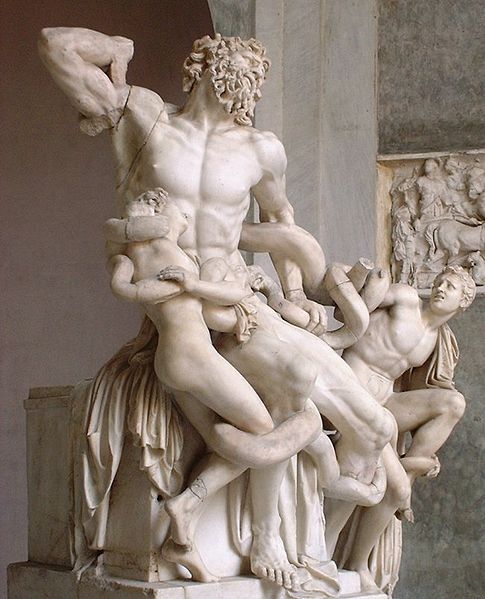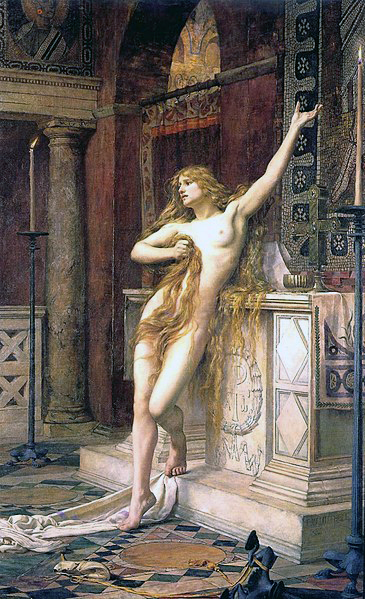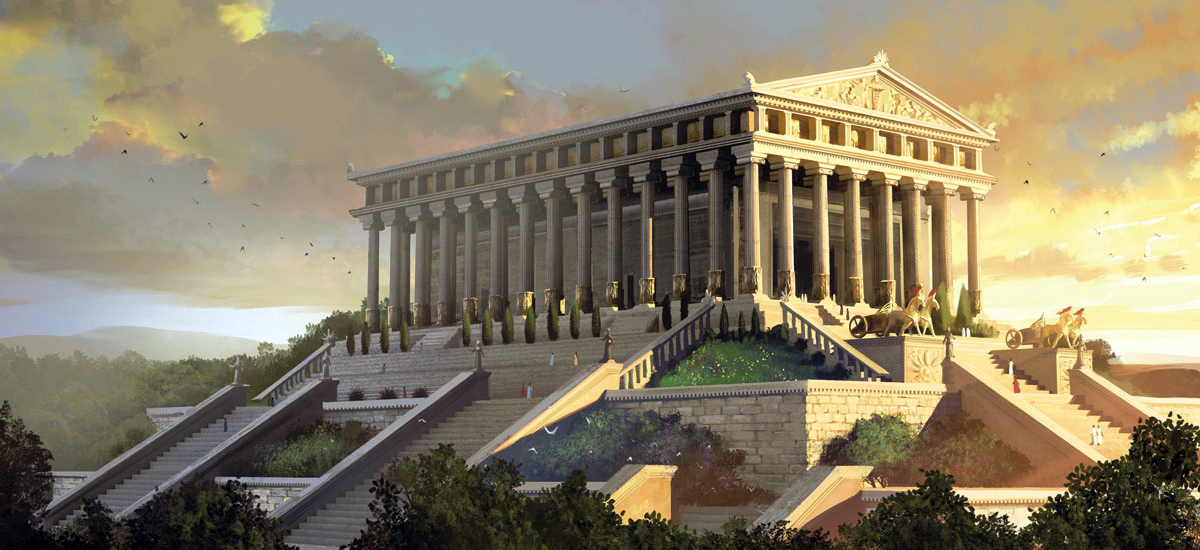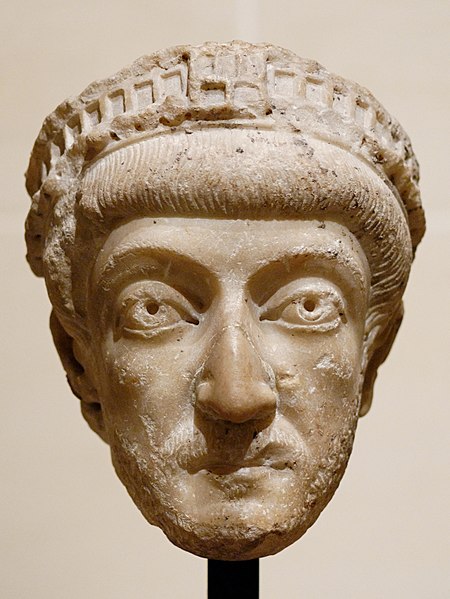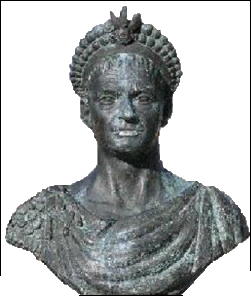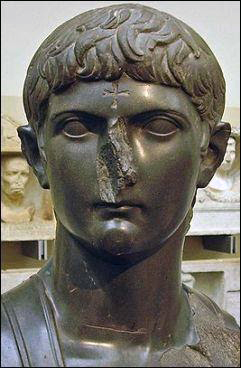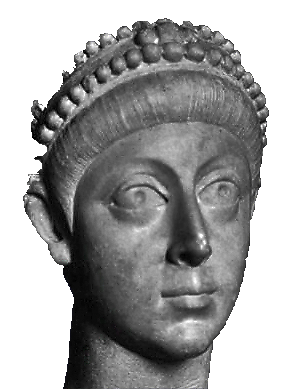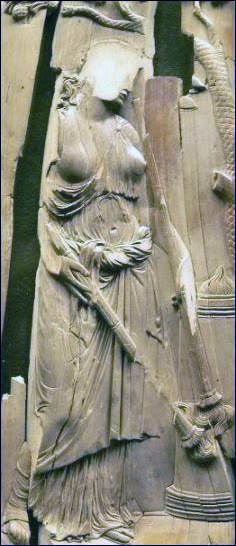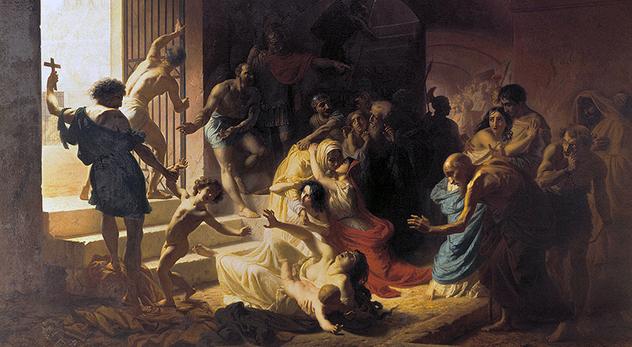by Evropa Soberana
Appendix to chapter 3:
Nietzsche on Christianity
On the Genealogy of Morality (1887), 1st treatise, § 8 [1]
But you fail to understand that? You have no eye for something that needed two millennia to emerge victorious…?
This Jesus of Nazareth, the personified evangelist of love, this ‘Saviour’ bringing holiness and victory to the poor, to the sick, to the sinners—was he not that very seduction in its most sinister and most irresistible form, the seduction and detour to exactly those Judaic values and innovations in ideals?
Didn’t Israel attain, precisely with the detour of this ‘Saviour’, of this apparent enemy against and dissolver of Israel, the final goal of its sublime thirst for vengeance?
Isn’t it part of the secret black art of a truly great politics of revenge, a farsighted, underground, slowly expropriating, and premeditated revenge, that Israel itself had to disown and nail to the cross, like some mortal enemy, the tool essential to its revenge before all the world, so that ‘all the world’, that is, all Israel’s enemies, could then take this particular bait without a second thought?…
At least it is certain that sub hoc signo Israel, with its vengeance and transvaluation of the worth of all other previous values, has triumphed again and again over all other ideals, over all nobler ideals.
§ 16
The two opposing values ‘good and bad’ and ‘good and evil’ have fought a fearful battle on earth for thousands of years… The symbol of this battle, written in a script which has remained legible through all human history up to the present, is called ‘Rome against Judea, Judea against Rome’. To this point there has been no greater event than this war, this posing of a question, this contradiction between deadly enemies.
Rome felt that the Jew was like something contrary to nature itself, its antipodal monstrum, as it were. In Rome the Jew was considered ‘convicted of hatred against the entire human race’. And that view was correct, to the extent that we are right to link the health and the future of the human race to the unconditional rule of aristocratic values—to Roman values…
By contrast, how did the Jews feel about Rome? We can guess that from a thousand signs, but it is sufficient to treat ourselves again to the Apocalypse of John, that wildest of all written outbursts which vengeance has on its conscience. (Incidentally, we must not underestimate the deep consistency of the Christian instinct when it ascribed this particular book of hate to the name of the disciple of love, the same man to whom it attributed that enthusiastic amorous gospel—there is some truth to this, no matter how much literary counterfeiting may have been necessary for this purpose.)
The Romans were indeed strong and noble men, stronger and nobler than any people who had lived on earth up until then or even than any people who had ever been dreamed up. Everything they left as remains, every inscription, is delightful, provided that we can guess what is doing the writing there.
By contrast, the Jews were par excellence that priestly people of resentment, who possessed an unparalleled genius for popular morality.
Which of them has proved victorious for the time being, Rome or Judea? Surely there’s not the slightest doubt. Just think of who it is people bow down to today in Rome itself as the personification of all the highest values (and not only in Rome, but in almost half the earth, all the places where people have become merely tame or want to become tame): in front of three Jews, as we know, and one Jewess—in front of Jesus of Nazareth, the fisherman Peter, the carpet maker Paul, and the mother of the first-mentioned Jesus, named Mary.
This is very remarkable: without doubt Rome has been conquered.
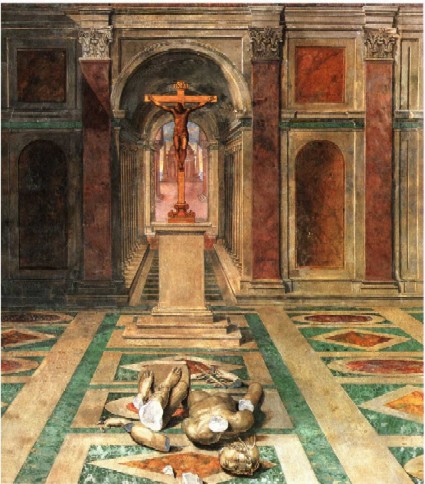
Tommaso Laureti, The Triumph of Christianity (also called The Triumph of the Cross, painted in 1585). The story of how an oriental messiah, with anorexic and masochistic air, came to replace the strong pagan gods.
The Anti-Christ: A Curse on Christianity (written in 1888)
§ 24
This is precisely why the Jews are the most disastrous people in world history: they have left such a falsified humanity in their wake that even today Christians can think of themselves as anti-Jewish without understanding that they are the ultimate conclusion of Judaism.
§ 58
The harvest is blighted overnight… That which stood there aere perennis, the imperium Romanum, the most magnificent form of organisation under difficult conditions that has ever been achieved, and compared to which everything before it and after it appears as patchwork, bungling, dilettantism—those holy anarchists made it a matter of ‘piety’ to destroy ‘the world’, which is to say, the imperium Romanum, so that in the end not a stone stood upon another.
The Christian and the anarchist: both are décadents; both are incapable of any act that is not disintegrating, poisonous, degenerating, blood-sucking; both have an instinct of mortal hatred of everything that stands up, and is great, and has durability, and promises life a future…
Christianity was the vampire of the imperium Romanum—overnight it destroyed the vast achievement of the Romans: the conquest of the soil for a great culture that could await its time. Can it be that this fact is not yet understood?
The imperium Romanum that we know, and that the history of the Roman provinces teaches us to know better and better—this most admirable of all works of art in the grand manner was merely the beginning, and the structure to follow was to prove its worth for thousands of years.
To this day, nothing on a like scale sub specie aeterni has been brought into being, or even dreamed of! This organisation was strong enough to withstand bad emperors: the accident of personality has nothing to do with such things—the first principle of all genuinely great architecture.
But it was not strong enough to stand up against the corruptest of all forms of corruption—against Christians… These stealthy worms, which under the cover of night, mist and duplicity, crept upon every individual, sucking him dry of all earnest interest in real things, of all instinct for reality—this cowardly, effeminate and sugar-coated gang gradually alienated all ‘souls’, step by step, from that colossal edifice, turning against it all the meritorious, manly and noble natures that had found in the cause of Rome their own cause, their own serious purpose, their own pride.
One has but to read Lucretius to know what Epicurus made war upon—not paganism, but ‘Christianity’, which is to say, the corruption of souls by means of the concepts of guilt, punishment and immortality. He combated the subterranean cults, the whole of latent Christianity—to deny immortality was already a form of genuine salvation. Epicurus had triumphed, and every respectable intellect in Rome was Epicurean—when Paul appeared…
Paul, the Chandala hatred of Rome, of ‘the world’, in the flesh and inspired by genius—the Jew, the eternal Jew par excellence…
What he saw was how, with the aid of the small sectarian Christian movement that stood apart from Judaism, a ‘world conflagration’ might be kindled; how, with the symbol of ‘God on the cross’, all secret seditions, all the fruits of anarchistic intrigues in the empire, might be amalgamated into one immense power.
‘Salvation is of the Jews’. Christianity is the formula for exceeding and summing up the subterranean cults of all varieties, that of Osiris, that of the Great Mother, that of Mithras, for instance: in his discernment of this fact the genius of Paul showed itself.
This was his revelation at Damascus: he grasped the fact that he needed the belief in immortality in order to rob ‘the world’ of its value, that the concept of ‘hell’ would master Rome—that the notion of a ‘beyond’ is the death of life… Nihilist and Christian: they rhyme in German, and they do more than rhyme…
§ 59
The whole labour of the ancient world gone for naught: I have no word to describe the feelings that such an enormity arouses in me!
And, considering the fact that its labour was merely preparatory, that with adamantine self-consciousness it laid only the foundations for a work to go on for thousands of years, the whole meaning of antiquity disappears…
To what end the Greeks? to what end the Romans? All the prerequisites to a learned culture, all the methods of science, were already there and had been there for two thousand years! All gone for naught! All overwhelmed in a night, but not by a convulsion of nature! But brought to shame by crafty, sneaking, invisible, anæmic vampires! Not conquered,—only sucked dry…!
Hidden vengefulness, petty envy, became master! Everything wretched, intrinsically ailing, and invaded by bad feelings, the whole ghetto-world of the soul was at once on top! One needs but read any of the Christian agitators, for example, St. Augustine, in order to realize, in order to smell, what filthy fellows came to the top.
§ 61
Here it becomes necessary to call up a memory that must be a hundred times more painful to Germans. The Germans have destroyed for Europe the last great harvest of civilisation that Europe was ever to reap—the Renaissance. Is it understood at last, will it ever be understood, what the Renaissance was? The transvaluation of Christian values: an attempt with all available means, all instincts and all the resources of genius to bring about a triumph of the opposite values, the more noble values…
To attack at the critical place, at the very seat of Christianity, and there enthrone the more noble values—that is to say, to insinuate them into the instincts, into the most fundamental needs and appetites of those sitting there…
I see before me the possibility of a perfectly heavenly enchantment and spectacle: it seems to me to scintillate with all the vibrations of a fine and delicate beauty, and within it there is an art so divine, so infernally divine, that one might search in vain for thousands of years for another such possibility; I see a spectacle so rich in significance and at the same time so wonderfully full of paradox that it should arouse all the gods on Olympus to immortal laughter: Cæsar Borgia as pope!… Am I understood?… Well then, that would have been the sort of triumph that I alone am longing for today: by it Christianity would have been swept away!
What happened? A German monk, Luther, came to Rome. This monk, with all the vengeful instincts of an unsuccessful priest in him, raised a rebellion against the Renaissance in Rome…
Instead of grasping, with profound thanksgiving, the miracle that had taken place: the conquest of Christianity at its capital—instead of this, his hatred was stimulated by the spectacle. A religious man thinks only of himself. Luther saw only the depravity of the papacy at the very moment when the opposite was becoming apparent: the old corruption, the peccatum originale, Christianity itself, no longer occupied the papal chair! Instead there was life! Instead there was the triumph of life! Instead there was a great yea to all lofty, beautiful and daring things!…
And Luther restored the church.
§ 62
With this I come to a conclusion and pronounce my judgment. I condemn Christianity; I bring against the Christian church the most terrible of all the accusations that an accuser has ever had in his mouth. It is, to me, the greatest of all imaginable corruptions; it seeks to work the ultimate corruption, the worst possible corruption. The Christian church has left nothing untouched by its depravity; it has turned every value into worthlessness, and every truth into a lie, and every integrity into baseness of soul.
This eternal accusation against Christianity I shall write upon all walls, wherever walls are to be found—I have letters that even the blind will be able to see… I call Christianity the one great curse, the one great intrinsic depravity, the one great instinct of revenge, for which no means are venomous enough, or secret, subterranean and small enough, —I call it the one immortal blemish upon the human race…
And mankind reckons time from the dies nefastus when this fatality befell—from the first day of Christianity!—Why not rather from its last?—From today?—
Transvaluation of all values!
__________________
[1] Note of the Ed.: While I follow Evropa Soberana’s quotes of On the Genealogy of Morality, in the case of The Antichrist I added other paragraphs to the author’s quotes from the last pages Nietzsche’s book (included the final page that will appear in the next entry).


